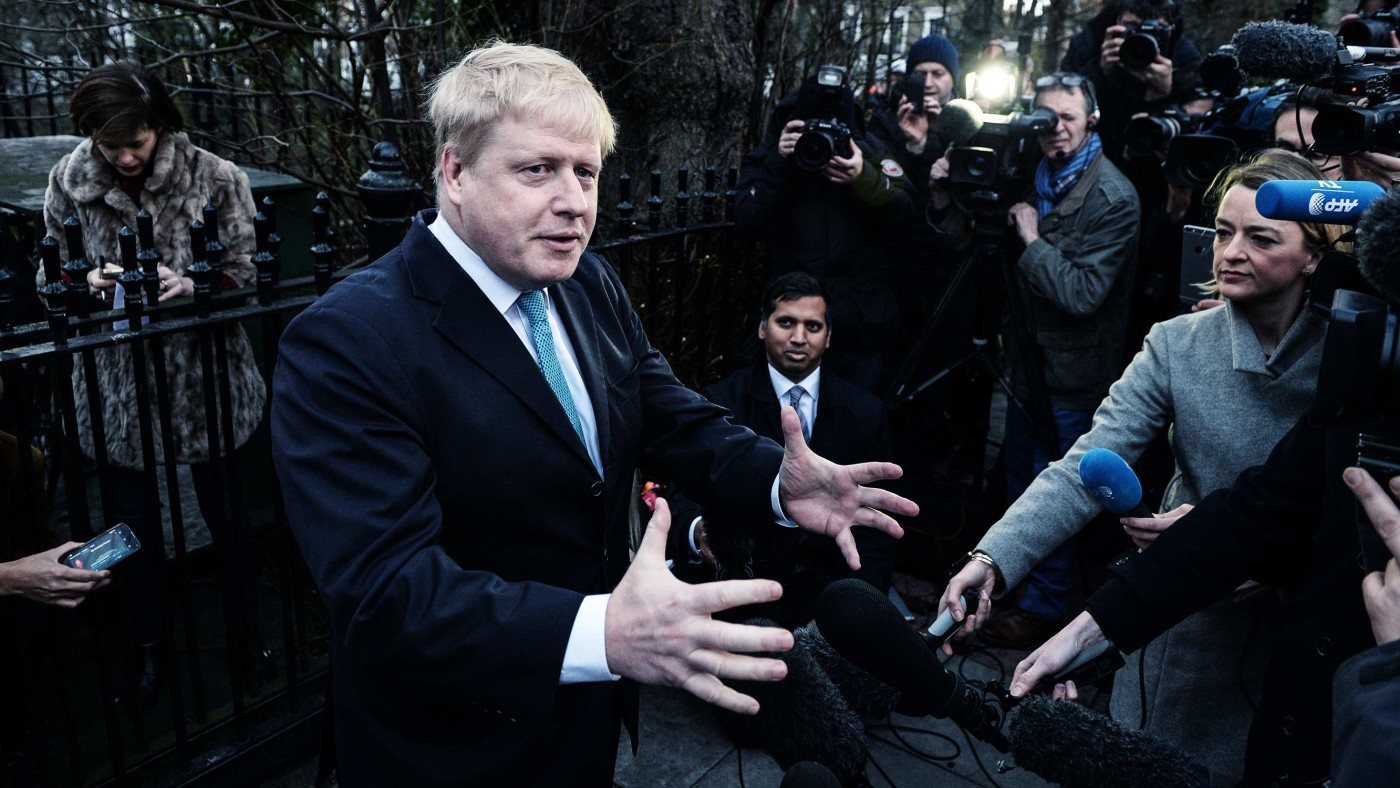It has been an extraordinary performance. Wagner himself would have found it hard to orchestrate such a portentous overture. There must have been enough attention to gratify even Boris Johnson’s immense ego. Yet it remains to be seen whether the audience will buy the act, and there are reasons for scepticism.
For a start, the rest of the opera does not live up to the opening fanfares. Boris tells us that he has always been in favour of Europe, but there is this problem over sovereignty. That is true, and has been so for 43 years. During the whole of Margaret Thatcher’s premiership, right up until the present day, the European Court of Justice has impinged on British sovereignty. Boris has some background in European affairs: after all, he was a Brussels correspondent. Yet he is talking as if he had only just become aware of the ECJ’s existence; as if David Cameron were guilty of failing to reckon with this new threat to Britain’s freedoms. The implication is clear. If he, Boris, had been in charge, there would have been a better deal and no need for Brexit. He almost seemed to be implying that there could be new negotiations after a Brexit vote. On the face of it, he is in the grip of a delusion.
Let us assume that Britain voted to leave. There would be dismay on the continent, but also anger. The Brits would be seen as wreckers. While the rest strove with the challenge of building a Europe that would represent a decisive break with a millenium of conflict and war, we had been sneering from the sidelines. Why is the EU in trouble at the moment? Because irresponsible Anglo-Americans made a mess of the Middle East and then wrecked the banking system. If we voted to leave, they would try to make the best of the difficulties we had created. This would include a trade deal with the UK. But it is laughable to suppose that they would be keen to have us back to create another set of problems, or that they would rush to reward us for our Euro-perfidy. Boris is rarely accused of naivety, so how can he be so unrealistic? Everything becomes clear if we focus on his real goal.
This has nothing to do with Brexit, everything to do with Bor-entrance – to No 10 Downing Street. Like Hillary Clinton, he wants the top job. Why? Because of a lust for self-gratification. But Boris has a weakness. Up to now, he has not been a convincing performer in the House of Commons. Many of his colleagues find him amusing: many fewer see the need to take him seriously. On that basis, he would have real difficulty finishing in the top two when Tory MPs vote in a leadership contest. Only the top two go forward to the Party members for the final round.
The EU referendum has given him the chance to kick over the card table. Up to now, he has shown no sustained hostility to the EU: nothing more than occasional forays into tepid Euro-scepticism. There is no reason to think that he actually wants to leave Europe. He has always had an infinite capacity to believe whatever is in his own interests to believe and has never shown any interest in detail. Even so, he must be aware of the incalculably great implications of a British departure – and the risks. That helps to explain his hesitation in recent days, when he seemed wedded to sitting on the fence, courting the danger of a fence pole up the fundament. and of his colleagues concluding that he was solely motivated by ambition.
But suppose Brexit were narrowly defeated. Britain would still be in the EU: safety first. But the Brexiters in Parliament would be sufficiently grateful to ensure that Boris had the votes to guarantee a top-two finish. As the party membership is overwhelmingly Eurosceptic, he must fancy his chances of clowning his way to the Premiership.
So there we are. Boris has said that he will not offer to debate against David Cameron. From his point of view, that is a wise move. It is impossible to imagine Boris in any serious debate or interview without falling apart. He is as comfortable with seriousness as slugs are with salt. But he is the finest (if that is the word) clown in British political history. Over the next few weeks, he will enjoy himself doing what he does best; razzing the matazz. Like Donald Trump – there is a physical resemblance – he will tell them what they want to hear.
Will it work? In Brexit terms, I predict failure. As the moment of decision approaches, enough voters will conclude that complexity counts, not clownishness: that Europe is about jobs, not jokes. So Boris will get the outcome he secretly wants: a Brexit defeat. It may even be that he will do his Brexit cause harm, by draining the oxygen away from serious figures and principally from Michael Gove. No-one could ever accuse him of lacking moral depth. Sincere, heart-felt, even agonised, his apologia had Martin Luther qualities; here I stand: I can do no other. That is a man who is in public life to promote his country’s best interests, and it shows. Boris is a man who is in public life to promote his own best interests. That also shows.
But will he do badly enough to destroy his Prime Ministerial prospects? That important battle is still to come.


